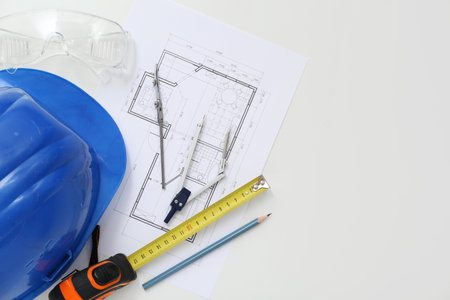Understanding Common Neighbour Disputes
Neighbour disputes are a common challenge for homeowners across the UK, often impacting both property value and quality of life. Understanding the typical issues at play is crucial before taking any legal steps. The most frequent disputes tend to revolve around boundaries, noise, and shared access. Each of these areas comes with its own complexities and potential legal implications.
| Type of Dispute | Description | Typical Impact |
|---|---|---|
| Boundary Disagreements | Unclear or contested property lines, disputes over fences, walls, or hedges. | May affect property size, value, and future saleability. |
| Noise Complaints | Loud music, parties, barking dogs, or renovation work disturbing the peace. | Can lead to strained relations and potential health impacts from stress. |
| Shared Access Concerns | Disputes over rights of way, driveways, or communal pathways. | Might restrict movement or access to essential facilities. |
In the UK context, such disputes are not just minor irritations—they can evolve into significant financial liabilities if left unresolved. Homeowners must be aware that ignoring neighbourly friction can result in formal complaints, council intervention, or even court action. Establishing clear communication and understanding your rights is the first step towards a pragmatic resolution.
2. Initial Communication and Informal Resolution
When facing a neighbour dispute in the UK, it is crucial to initiate the process with open and respectful communication before resorting to formal legal avenues. This approach not only fosters goodwill but can often lead to quicker, cost-effective resolutions that maintain a positive relationship between neighbours. Here’s how homeowners can take proactive steps:
Engaging in Constructive Dialogue
The first step is to approach your neighbour in person or through a polite letter, clearly outlining your concerns without assigning blame. Choose a suitable time to talk, remain calm, and focus on finding common ground. The goal is to listen as much as you speak, demonstrating empathy for their perspective while expressing your own needs.
Documenting Communications
It is essential to keep accurate records of all interactions regarding the dispute. This documentation can serve as vital evidence if the matter escalates legally. Use the following table as a guide for what details to record:
| Date | Method of Communication | Summary of Discussion | Outcome/Action Agreed |
|---|---|---|---|
| 15 March 2024 | Face-to-face meeting | Discussed noise after 10pm | Neighbour agreed to lower volume |
| 18 March 2024 | Follow-up on previous agreement | No further issues reported |
Attempting Mediation Before Legal Escalation
If initial discussions do not yield results, consider mediation—a structured negotiation facilitated by an impartial third party. Many local councils offer mediation services, which are often less adversarial and more affordable than court proceedings. Mediation encourages both parties to reach a mutually acceptable solution, preserving neighbourhood harmony and avoiding the stress and expense of litigation.
Key Benefits of Early Informal Resolution
- Preserves relationships with neighbours
- Saves time and money compared to court action
- Provides a confidential forum for honest discussion
Taking these initial steps demonstrates goodwill and may even be required by courts before accepting a case, showing that you have made reasonable attempts to resolve the issue amicably.

3. Seeking Professional Advice
When neighbour disputes escalate or become particularly complex, seeking professional advice is often the most prudent course of action for UK homeowners. Knowing when and why to consult with solicitors, surveyors, or your local council can save you time, money, and unnecessary stress while ensuring your rights are protected.
When to Seek Help from Professionals
If informal discussions fail to resolve the issue, or if the matter involves legal boundaries, property damage, or breaches of planning regulations, it’s advisable to turn to experts. Here’s a breakdown of who you might consult and in what situations:
| Professional | When to Consult | Why It’s Beneficial |
|---|---|---|
| Solicitor | Legal threats, boundary disputes, harassment, noise complaints | Provides legal clarity, helps draft formal letters, and represents you in court if necessary |
| Surveyor | Boundary or land disputes, shared structures (e.g., party walls) | Offers expert measurement and impartial reports that can be used as evidence |
| Local Council Services | Breach of planning permission, environmental health issues (noise, rubbish), antisocial behaviour | Powers to enforce regulations and mediate under statutory frameworks |
The Value of Local Expertise
Engaging a professional who understands local regulations and customs—such as a solicitor familiar with regional property law—can be invaluable. For example, councils in England may have different procedures from those in Scotland or Wales regarding noise complaints or high hedges. Surveyors registered with the Royal Institution of Chartered Surveyors (RICS) offer nationally recognised expertise on property boundaries.
Navigating Costs and Outcomes
While hiring professionals incurs costs, their guidance often prevents costly legal mistakes. Many solicitors offer fixed-fee consultations for initial advice. In some cases, mediation services facilitated by the council may be free or low cost, helping both parties reach an amicable solution without resorting to litigation.
Summary Table: Who to Contact Based on Dispute Type
| Dispute Type | Recommended Professional(s) |
|---|---|
| Boundary/Party Wall Issues | Surveyor & Solicitor |
| Noise/Antisocial Behaviour | Local Council Services & Solicitor (if unresolved) |
| Trees/Hedges Overgrowth | Local Council (High Hedges Team), Solicitor for enforcement advice |
| Breach of Planning Permissions | Local Council Planning Department & Solicitor if escalated |
Ultimately, seeking tailored advice ensures that you approach neighbour disputes in accordance with UK law and local practices—protecting your investment and peace of mind.
4. Legal Routes and the Role of the Courts
When informal negotiation and mediation fail to resolve a neighbour dispute, homeowners in the UK may need to consider formal legal action. Understanding the available legal routes is crucial for protecting your property rights and interests. The following table outlines the principal formal options under UK law:
| Legal Route | Description | Typical Use Cases |
|---|---|---|
| Court Proceedings | Filing a claim in County Court or High Court, depending on the complexity and value of the dispute. | Boundary disagreements, persistent nuisance claims, property damage. |
| Injunctions | A court order that requires a neighbour to do or refrain from doing specific acts. | Stopping construction, noise abatement, halting trespass. |
| Monetary Claims | Pursuing compensation for damages suffered as a result of neighbour actions. | Repair costs, loss of property value, personal injury. |
Understanding Court Proceedings
If you decide to pursue court proceedings, the process generally begins with sending a formal Letter Before Action to your neighbour. This letter outlines your grievance and the resolution you seek. Should this not resolve matters, you can file a claim in the appropriate court. For most homeowner disputes, this will be the County Court; more complex or high-value cases may be heard by the High Court. Legal representation is advisable, though not mandatory.
The Role of Injunctions
An injunction can be a powerful tool for homeowners facing ongoing or serious breaches of rights—such as unauthorised building work or persistent harassment. To obtain an injunction, you must demonstrate to the court that there is no adequate remedy other than stopping (or compelling) certain behaviour. Breach of an injunction may result in fines or imprisonment for the offending neighbour.
Making a Claim: Key Steps
The typical process for making a claim involves:
- Documenting evidence: Photographs, correspondence, witness statements.
- Seeking professional advice: Engaging a solicitor or Citizens Advice Bureau.
- Filing paperwork: Completing claim forms and paying relevant fees.
- Attending hearings: Presenting your case before a judge if required.
While litigation should always be a last resort due to potential costs and time involved, it remains a vital mechanism for resolving entrenched neighbour disputes in the UK property landscape.
5. Understanding Costs and Risks
When navigating neighbour disputes in the UK, it is crucial for homeowners to evaluate the financial implications and risks involved. Legal action can be both time-consuming and expensive, potentially impacting not only your immediate budget but also the long-term value and saleability of your property. Below is an analysis of the key cost considerations and potential risks associated with unresolved disputes.
Potential Costs Involved
| Type of Cost | Description | Estimated Range (£) |
|---|---|---|
| Solicitor’s Fees | Hourly rates or fixed fees for legal advice, correspondence, and representation | £150–£350 per hour |
| Mediation Services | Professional mediation to facilitate a resolution between neighbours | £500–£1,500 (per session) |
| Court Fees | Filing claims or seeking injunctions through civil courts | £200–£10,000+ |
| Surveyor’s Reports | Boundary or structural assessments by qualified surveyors | £400–£1,000+ |
| Expert Witness Fees | If technical evidence or testimony is required in court proceedings | £800–£2,500+ |
Legal Risks to Consider
Pursuing legal remedies carries inherent risks. If you lose your case, you may be ordered to pay some or all of your neighbours legal costs in addition to your own. Even successful outcomes can result in strained relationships or ongoing animosity, which may disrupt community harmony.
Impact on Property Value and Saleability
An unresolved dispute can have a tangible effect on your property’s market appeal. Potential buyers may be put off by the prospect of inheriting a contentious situation, leading to reduced offers or protracted selling periods. In extreme cases, details of ongoing disputes must be disclosed during conveyancing, as required by UK law—neglecting this duty could result in future litigation against the seller.
| Risk Factor | Impact on Property Value/Saleability |
|---|---|
| Ongoing Legal Action Not Disclosed | May lead to buyer withdrawal or legal claims post-sale; possible price reduction 5–15% |
| Negative Local Reputation | Affects desirability for prospective purchasers; slower sales process |
| Court Judgement Against Property Owner | Puts a charge on property title; complicates mortgage or remortgage applications |
A Balanced Approach is Key
Before escalating a neighbour dispute legally, weigh up all potential costs and risks. Consider alternative dispute resolution methods like mediation, which are often less costly and disruptive than court action. For investors and homeowners alike, resolving disputes amicably protects not just your peace of mind but also preserves your property’s long-term value and liquidity.
6. Protecting Your Interests and Moving Forward
Successfully resolving a neighbour dispute is only half the battle for UK homeowners; safeguarding your interests and fostering long-term harmony is equally crucial. Below, we outline actionable tips to prevent future disputes, maintain robust property documentation, and build enduring, positive relations with your neighbours.
Tips for Preventing Future Disputes
- Clear Communication: Engage in open and respectful dialogue with neighbours. Address minor issues early before they escalate.
- Set Boundaries: Be clear about property lines, shared responsibilities (such as fences or driveways), and mutual expectations.
- Regular Maintenance: Keep gardens, hedges, and external areas tidy to minimise potential sources of conflict.
Maintaining Property Documentation
Robust documentation is your best ally in preventing misunderstandings and supporting your position if disputes arise. Ensure the following records are up-to-date and securely stored:
| Document Type | Description | Why It Matters |
|---|---|---|
| Title Deeds & Land Registry Plans | Official documents outlining property boundaries | Avoids confusion over land ownership and rights of way |
| Correspondence Records | Written communication with neighbours regarding agreements or concerns | Evidences efforts to resolve issues amicably |
| Planning Permissions & Agreements | Council approvals for extensions or alterations | Prevents disputes over unauthorised changes |
Fostering Positive Neighbourly Relations Long-Term
- Community Engagement: Participate in local events or residents’ associations to build rapport and trust.
- Neighbourhood Watch Schemes: Collaborate on community safety initiatives, reinforcing a sense of collective responsibility.
- Regular Check-ins: Simple gestures—like exchanging holiday cards or checking in after adverse weather—can strengthen goodwill.
The Value of Proactive Measures
Taking these steps not only reduces the risk of future conflicts but also enhances the value of your property by promoting a stable, harmonious environment—a factor increasingly prized in today’s competitive UK housing market.
Your Next Steps
By maintaining diligent records, practising open communication, and actively engaging in your community, you safeguard your investment while fostering a positive neighbourhood atmosphere—a win-win for both your peace of mind and your property’s long-term value.


